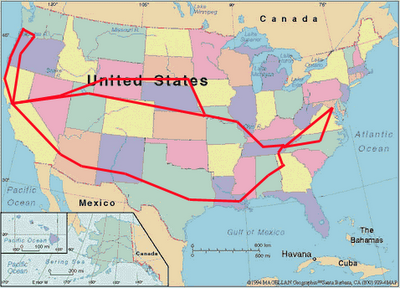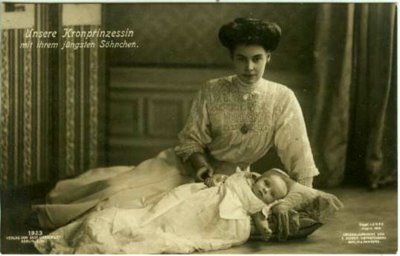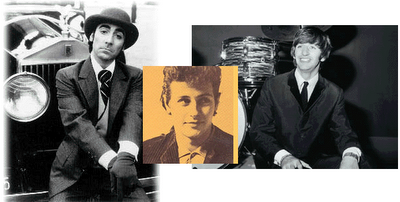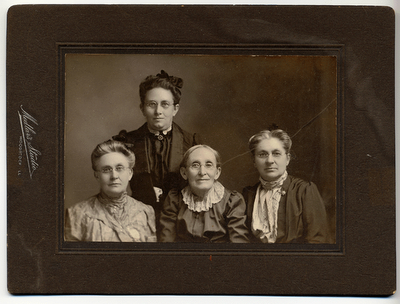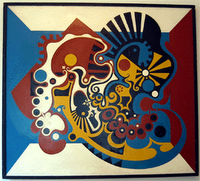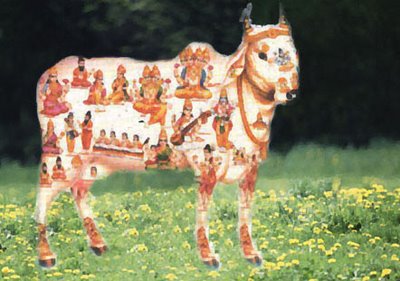I'm It: Reference Edition
 Ok, ok... I give. I have been tagged. This means that I am "it" and must follow certain rules and play the game, or risk being labeled "no fun." Since I have never, ever been referred to as "no fun" I will do as instructed. Here are the rules (blatantly copied from daytripper):
Ok, ok... I give. I have been tagged. This means that I am "it" and must follow certain rules and play the game, or risk being labeled "no fun." Since I have never, ever been referred to as "no fun" I will do as instructed. Here are the rules (blatantly copied from daytripper):- Find the nearest book
- Name the title and author
- Turn to p. 123
- Post sentences 6-8
- Tag 3 more people
Seems simple enough. Yet, turning to the book closest to me, I find myself looking at "Elder Law: Statutes and Regulations." Oh boy. Page 123 contains an excerpt from the Age Discrimination in Employment Act. Hmmm. This particular page is rife with long, winding legal prose dense with semi-colons and bulleted lists. Sentence 6 starts two-thirds of the way down the page and there is no sentence 8 on this page. I can't do this. What do the rules say? The nearest book? Looking at this book, I realize it is not so much a book as a reference text or treatise. No, this is not a "book" as the rule writers probably intended, and since sentence 8 doesn't even exist on page 123 of this text, it seems reasonable to disqualify "Elder Law" as it does not satisfy the spirit of the game.
I move on to the next-nearest, non-legal book. Here sits "The America's Test Kitchen Family Cookbook." On page 123 I find two recipes for cooking vegetables. Looks good so far, especially if you are a beet-lover or are craving a little broccoli rabe. However, there is another problem: the rules state that sentences are to be posted. So, if I remember correctly, in its most basic form a sentence contains a subject and a verb. Also, it seems a reasonable assumption that the intention of the game is that the sentences should be consecutive. After all, the rules require that sentences 6-8 are posted. Surely those who created the rules intended and expected that sentence 6 would be followed consecutively by sentence 7, and sentence 7 by sentence 8? Of course! But, looking at the recipes, I'm having a little trouble finding complete sentences and, when I do find them, I can't seem to find them consecutively. Does the fragment following a sentence count as a sentence? Do descriptions without verbs which are clearly not sentences count? And where do I start counting? At the first complete sentence, or at the first sentence that is consecutively followed by another? Because this book doesn't actually contain complete, consecutive sentences, and I can't figure a clear way to count sentences, I quickly determine that this book also falls outside the rules of the game.
Continuing to the next-nearest, nearest book, I come across "American Place Names: A Concise and Selective Dictionary for the Continental United States of America" by George R. Stewart. This looks promising. And sure enough, on page 123 I find that sentences 6-8 are indeed complete. Unfortunately they are not consecutive. Headers break-up the flow. Do headers count as sentences? Applying the Cookbook Rule to this book, I eliminate it and move on.
Now, standing in front of a bookcase, I will undoubtedly find a book that satisfies the spirit of the game while also containing complete, consecutive sentences. Trying to retain some of the intended randomness "nearest book" implies, I close my eyes and wave my arm around (as though this will disorient my arm and ensure a random pick). I move my hand toward the bookcase and pluck the book my hand first lands on. It is "Modern Art" (2nd ed.) by Sam Hunter and John Jacobus. And lo and behold, there are complete, consecutive sentences:
"Klee's semiautomatic techniques and hieroglyphs also offer close parallel with the emerging Surrealist movement and its practices after the mid-1920s, especially as expressed in the organic semiabstract imagery of Joan Miro. His imagination, however, was not directed specifically to the unconscious or to any programmatic exploration of free association. Rather, he sought signs and images for man's tragi-comic predicament, in a humorous and punning fashion, without much explicit psychological content, or, alternately, he explored symbols for universal forces much as Marc and Kandinsky had done."
So there. It is done and the rules and spirit of the game have been upheld.
But I can't help but wonder what it says about me that I don't have anything even slightly entertaining handy? What does it mean that every book within reach is a reference book? Well, it might mean I spend a lot of time wondering Why or How. But I fear that it only means that I have found myself in a "tragi-comic predicament without much explicit psychological content." Damn, I need to go buy some fiction.
Continuing to the next-nearest, nearest book, I come across "American Place Names: A Concise and Selective Dictionary for the Continental United States of America" by George R. Stewart. This looks promising. And sure enough, on page 123 I find that sentences 6-8 are indeed complete. Unfortunately they are not consecutive. Headers break-up the flow. Do headers count as sentences? Applying the Cookbook Rule to this book, I eliminate it and move on.
Now, standing in front of a bookcase, I will undoubtedly find a book that satisfies the spirit of the game while also containing complete, consecutive sentences. Trying to retain some of the intended randomness "nearest book" implies, I close my eyes and wave my arm around (as though this will disorient my arm and ensure a random pick). I move my hand toward the bookcase and pluck the book my hand first lands on. It is "Modern Art" (2nd ed.) by Sam Hunter and John Jacobus. And lo and behold, there are complete, consecutive sentences:
"Klee's semiautomatic techniques and hieroglyphs also offer close parallel with the emerging Surrealist movement and its practices after the mid-1920s, especially as expressed in the organic semiabstract imagery of Joan Miro. His imagination, however, was not directed specifically to the unconscious or to any programmatic exploration of free association. Rather, he sought signs and images for man's tragi-comic predicament, in a humorous and punning fashion, without much explicit psychological content, or, alternately, he explored symbols for universal forces much as Marc and Kandinsky had done."
So there. It is done and the rules and spirit of the game have been upheld.
But I can't help but wonder what it says about me that I don't have anything even slightly entertaining handy? What does it mean that every book within reach is a reference book? Well, it might mean I spend a lot of time wondering Why or How. But I fear that it only means that I have found myself in a "tragi-comic predicament without much explicit psychological content." Damn, I need to go buy some fiction.
Who's next? You're it:
- Footsie Jones (because I'm always interested in what you're reading)
- DSYU (because you read and write, and if you don' t blog, you should)
- Random jottings of... (because you think a lot, and I enjoy your random jottings)
photo: books, and none of them fun.
